Zagreb Local Elections 2021 Analysis: No "Ideological Referendums", Strictly Freedom And Solutions Wanted
May 30, 2021 - Following the turbulent public debate of the Zagreb mayor candidates that ended with Tomislav Tomašević winning the capital of Croatia, TCN reporter Ivor Kruljac brings you the Zagreb Local Elections 2021 Analysis, concluding that Zagreb is a city open for all ideologies but in constant search of quality solutions.
It's official – Tomislav Tomašević (seen on the lead image) is the new mayor of Zagreb, the 54th in a row when you look through Zagreb's history.
As a brand new chapter in Zagreb's local politics is turned, many are still uncertain about whether the former mayor Milan Bandić would lose or win another mandate if he hadn't suddenly and prematurely passed away earlier this year. Still, as Jelena Pavičić Vukićević, Bandić's successor joined the mayoral race and came in third place (despite being perceived as the keeper of Bandić's tradition), we could argue that is the indication that Bandić being suspected of corruption (and taken to court on several occasions) could've been the political end for him, had he lived to see the fight. But, of course, given Bandić's strong personality, that indication needs to be taken with a grain of salt, as many believe that not only would Bandić get to the second round of elections - but he'd even win them.
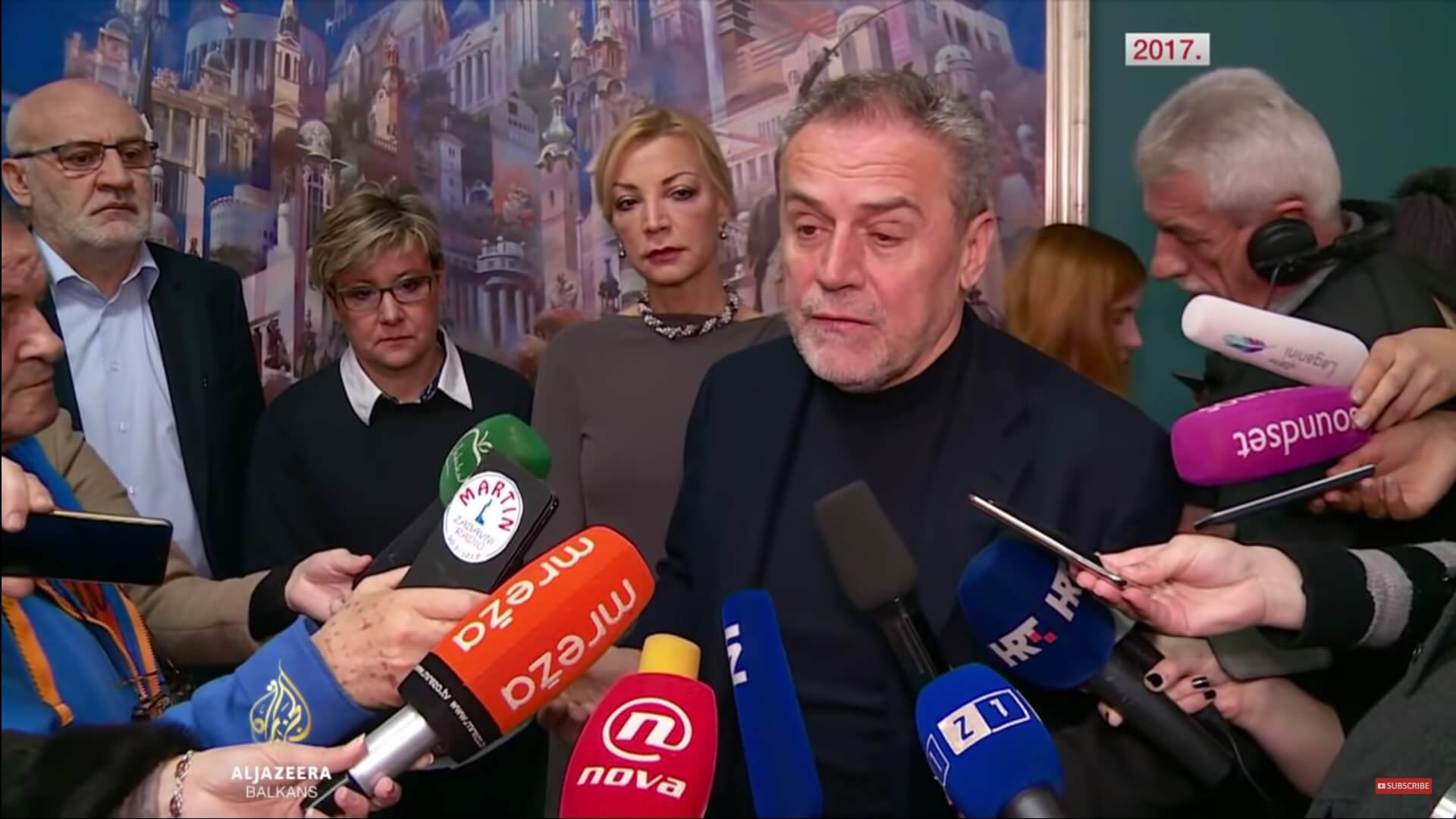
Former Zagreb mayor Milan Bandić, screenshot / Al Jazeera Balkans
A quick recap
In the first round, Tomislav Tomašević from the green-left platform We Can! (Mozemo!) earned a stunning 45,15 percent (147,631) votes. Not only was that twice as more than Škoro and Pavičić Vukičević combined, as N1 reported, but it was also more than with what Milan Bandić won in the second round of local elections back in 2017.
The mayoral race in Zagreb was highlighted with the question of who will succeed Milan Bandić and who will properly address all the debts and unfairly earned employment in the city administration as well as the overpricing of numerous city projects (such as the many fountains and the plagued Sljeme cable car). Additionally, there were the issues of the handling the mess of the Jakuševec junkyard, as well as handling the post-earthquake reconstruction of Zagreb's very heart. The only thing the majority of the candidates agreed to be good were the city's social policies, but they can still be improved.
However, as TCN previously reported, before even officially entering the second round, Miroslav Škoro turned the elections from practical questions of handling corruption to the age old and frankly boring ideological battle, accusing Tomašević and the We Can! (Mozemo!) platform of wanting to revive Yugoslavia.
''That's the extreme left, and it will be stopped in the second round, so help me God“, said Škoro on the night of the first election results.
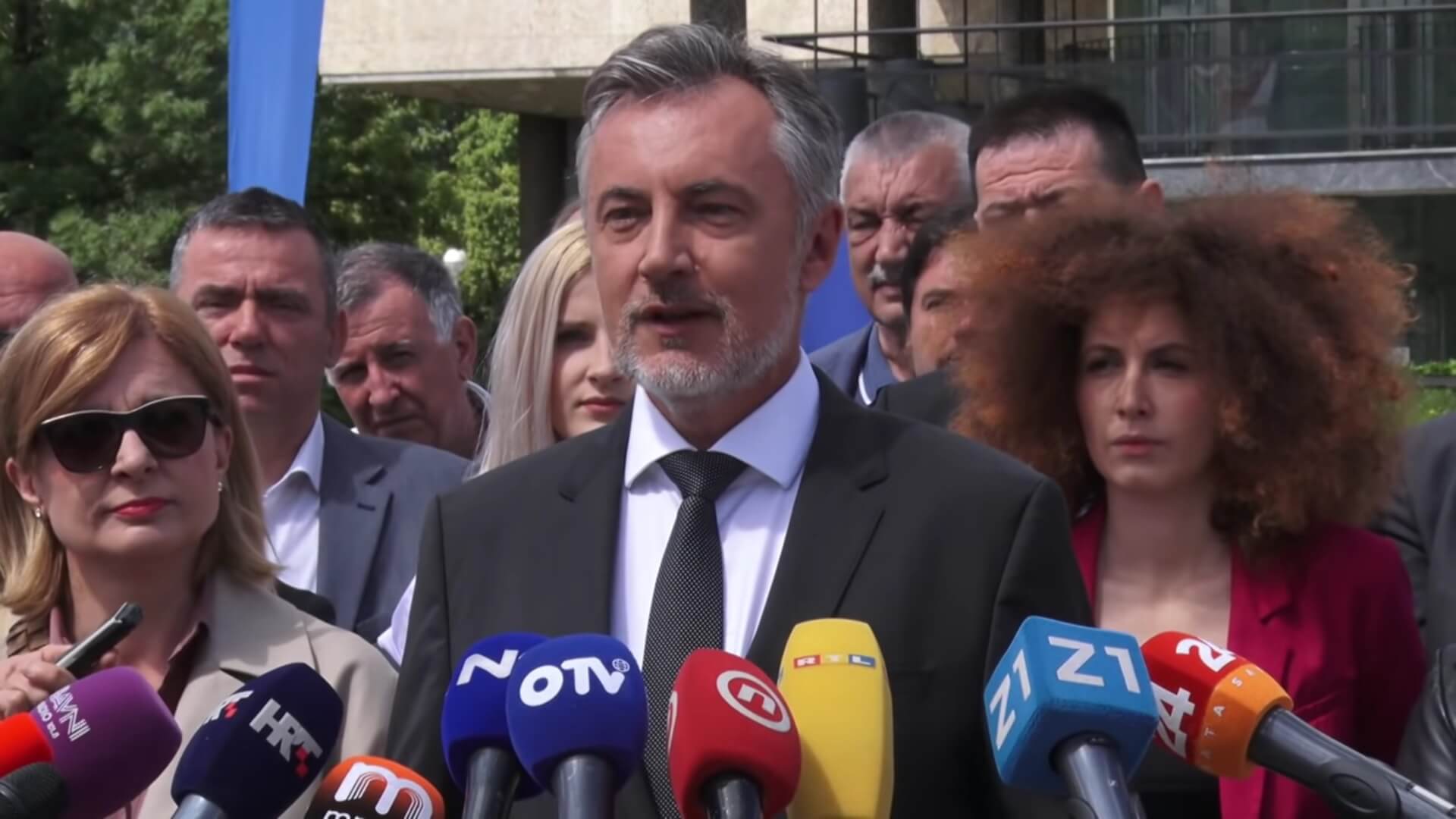
Miroslav Škoro, screenshot / Domovinski Pokret
This sort of rhetoric took everyone by surprise. Dražen Lalić, a sociologist and a professor at the Faculty of Political Sciences at the University of Zagreb, commented for RTL that Škoro himself is a radical candidate and that We Can! (Mozemo!) are neither extreme nor are they the radical left.
''Regardless of Škoro having a doctorate in economis, he's illiterate in the political sense; he doesn't know even the most basic terms. Extreme means outside of the system and not going to the elections. Radical actors are inside the system, and I think Škoro is radical. On the other hand, Tomašević and We Can! (Mozemo!) are very moderate in their attitudes; they're young people. There were no incidents and they are were moderate,'' said Lalić for RTL. He added that Škoro is probably aware that he had absolutely chance of winning but was still trying to reach the far-right electoral body.
24sata columnist Tomislav Klauški wrote about how Škoro's war with the perceived ''extreme left'' is quite literally the only thing in his entire programme. He concluded that such a move isn't going to work for Zagreb, which has never voted for far right options, and he also reminded that former mayor Milan Bandić, despite his many flaws, also came from the social-democratic political option.
''His filthy campaign from the first round, where his agency spread lies that Škare Ožbolt works ''for the Serbs'', where his news sites spread stories that Filipović's father is Serbian, and warned that Tomašević is a concealed right-winger, Škoro is now going further with that into the second wrong. As if Zagreb doesn't have enough problems to talk about,'' wrote Klauški on Monday after the first round.
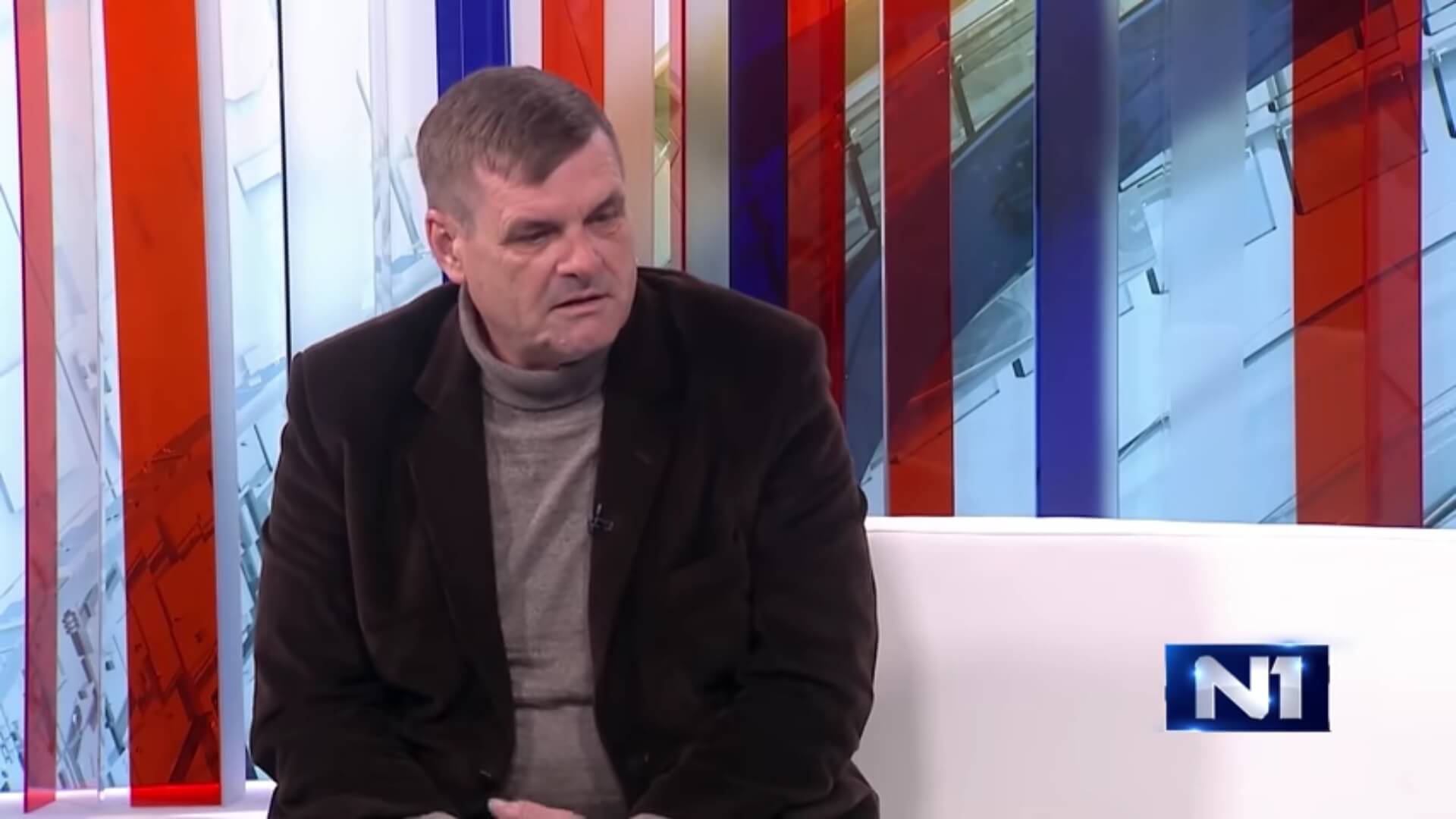
Dražen Lalić, screenshot / N1
Škoro then continued to push the narrative of these elections, declaring them an ideological referendum among right-wing and conservative circles. Škoro also accused We Can! (Mozemo!) of being foreign mercenaries working for famous philanthropist George Soros or wanting to revitalise Yugoslavia, and Škoro's associate Zlatko Hasanbegović stepped out into the Croatian public space calling the party a lesbian syndicate - weird indeed. Additionally, Nikola Grmoja (Most) stated for N1 that Mozemo are iPhone Soroshians, and accusations accompanied by rather odd name-calling saw a random generator on the internet designed to mock these terms by random options. Meanwhile, Tomašević continued his campaign by talking about solutions to the problems Zagreb is currently facing but occasionally making remarks on the accusations by his opponents and sometimes even throwing some accusations in Škoro's direction in return.
67% : 33% K.O.
This focus on actual problems Zagreb is facing and the refusal to dwell into ideological issues, along with the experience of activism for Zagreb's interests, proved to be the winning formula for Tomašević, beating Škoro with amazing 199,630 votes compared to Škoro's 106.300 votes. Not only did Tomašević beat Škoro by far, he also earned more than former mayor Milan Bandić did, and nobody has had more votes in Zagreb's mayoral elections to date.
Škoro lost his own so-called ideological referendum, but let's imagine for a moment that he actually won. Whether Škoro (or some other analysts who believed these elections would finally prove how Zagreb looks at things with an ideological eye) likes it or not, this "referendum" neither proves that Zagreb has turned to some radical left nor does it prove the opposite. First of all, only 45.7% of people voted on the second round of these elections. That's not even half of the total number of citizens that have the right to vote in Zagreb. Secondly, the culture and overall vibe of Zagreb truly tells us that Zagreb is diverse and very much open for everybody.
Zagreb - The pioneer liberal city for every idea
One thing we can say for certain about Zagreb's philosophy, if you will, is that Zagreb is proud to be a pioneer of development and a role model for the rest of the country. To illustrate that, Zagreb was proud that they'd be the first to use telecom lines, and by the time the rest of Croatia got telephones, Zagreb already had mobile phones. Being the capital city of Croatia, and the biggest city in the country, a centre of politics, education, science, culture, and more, Zagreb attracts people from all over the country and abroad, having bloomed into a multi-cultural city whose people have various ideologies and convictions.
When you look at ideological conflict in Croatia, which sadly doesn't seem to be anywhere near its end, it is often perceived that if you're a Croatian nationalist and conservative in Istria, you'll feel quite lonely indeed. On the other hand, left leaning progressives and liberals living in Dalmatia or Slavonia, areas that are known to be quite conservative, can't wait for a chance to leave those areas.
That being said, apologetics of all ideologies head to Zagreb, and Zagreb is a place where looking straightly from an ideological view, everyone is equally happy and miserable at the same time, but overall they're in a better position than in the rest of Croatia is. Before the pandemic, you had a regular event called ''Coffee with non-believers'' hosted by various venues such as Spunk bar or No Sikiriki. The event allowed for all atheists, agnostics, or even religious people unhappy with the breach of secularity by the Catholic Church in Croatia – to find those who think like they do, meet in person, talk, and have a good time.
On the other hand, in the Veliki Tolk pub in Opatovina, you have ''Right-wingers in the Pub'' which provides the same comfort and good times for the conservative-oriented people.
Regardless of what kind of genre of music you listen to, what movies you want to see, what kind of clubs you want to go to, mainstream pop, alternative rock, electronics, jazz... Zagreb's public sphere offers something for everyone.
Zagreb does have hospitals whose doctors refuse to perform abortions, but if there is any place a woman can have her reproductive rights respected in Croatia, then that place is Zagreb. Despite several violent homophobic incidents, the relaxing atmosphere of the LGBTQ Pride picnic on Ribnjak Park, and the support coming for the parade from the windows of Zagreb's buildings show that Zagreb is a safe place, and you won't feel alone because of your sexual preferences.
How these ideologies co-exist in being equally happy and miserable at the same time was perfectly demonstrated over the last two weeks. LGBTQ flags put out for the International Day Against Transphobia were torn down by vandals on the Victims of Fascism Square. A few days later, a pro-life initiative, Hod za Život“ (Walk for life) flags displayed on Ban Jelačić Square, were also quite quickly torn down. And the culmination of that event was seen on Saturday when the pro-life Walk For Life march was met with counter-protesters from Crveni Otpor (Red Resistance), which is pro-choice. So, as we can see, these ideologies create conflict at times, but more often, it's a peaceful co-existence. Equally miserable and happy at the same time, and still in a better position than the rest of the country.
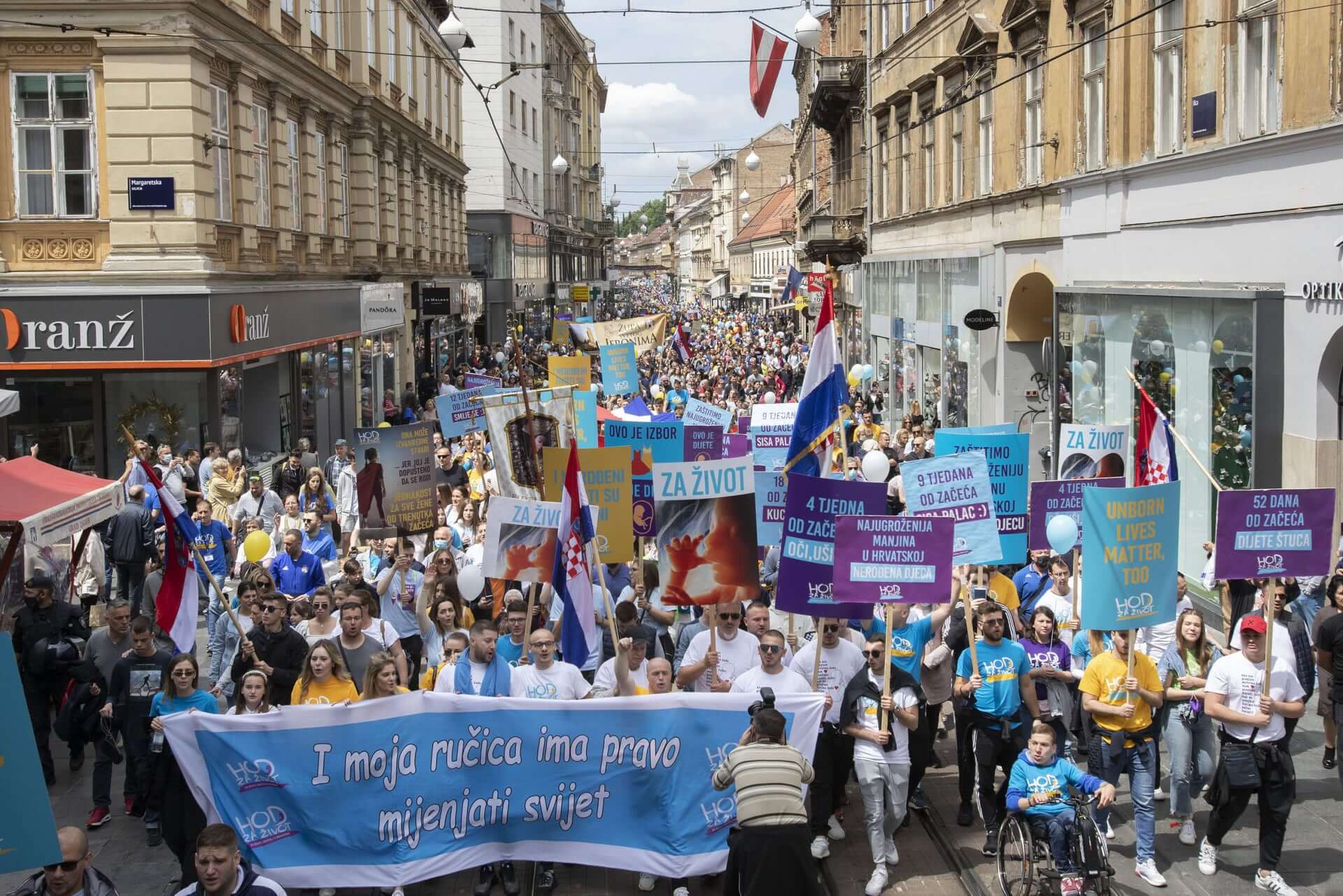
Pro-life march in Zagreb © Hod za život - Zagreb
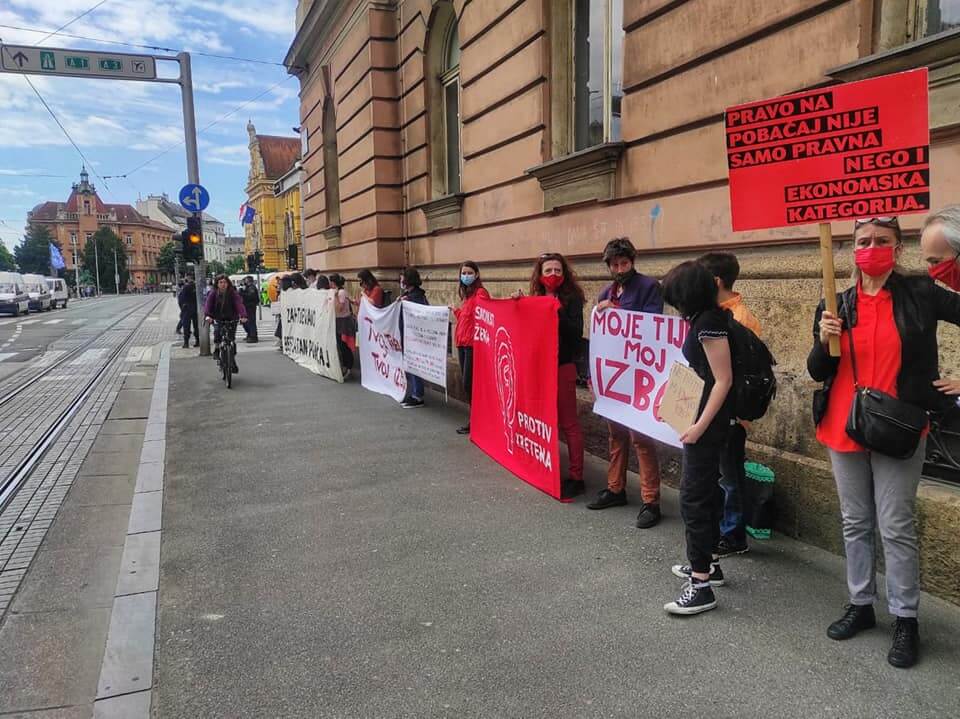
Pro-choice protesters waiting for pro-life march in Zagreb © Faktiv
Zagreb is liberal in its nature, courtesy of the growth and development it has seen, and even in the event that a conservative or even a radical conservative ever took the mayoral position, Zagreb wouldn't lose what it is in its soul.
Those who vote in Zagreb proved that ideological disputes are irrelevant, as long as freedom is respected by the candidate, and as long as you are not a radical and have a good solution for the city's problems, you're more than welcome to try and be a mayor.
Democracy is yet to be understood
That being said, there are some issues these elections highlighted for the political culture of Zagreb. First, Zagreb citizens that don't vote need to understand that voting is very important as our democratic right to have our say in what we want in Zagreb (as in the entire country). The freedom and all of the perks of living in Zagreb that citizens enjoy or don't enjoy are the direct results of politics, and any improvements or downfall in the city will come from politics. Having your say in these dynamic events is something that shouldn't be missed.
Democracy isn't a once-every-four-year event but a continuous practice of civic participation to make sure that promises before the election don't end up forgotten after the celebration.
Tomašević has said that "Zagreb is ours" (as is the name of one of the political parties in the Mozemo! platform), and so it's important for him to be open for the city's citizens, but also for citizens to be open to communicate with the local authorities to make a better community.
Learn more about Zagreb on our TC page.
For more about politics in Croatia, follow TCN's dedicated page.
Croatia Holding Election Runoffs on Sunday
ZAGREB, 29 May 2021 - The second round of local elections will take place on Sunday for the mayors of 57 cities and 87 municipalities as well as for the prefects of 14 counties in Croatia.
During the second round of voting, 3,231,000 citizens are eligible to vote at nearly, 5,500 polling stations that will be set up in 432 cities and municipalities.
Four biggest cities to get new mayors
The results of mayoral runoffs will show who will run the four biggest Croatian in the next four years. In the capital city of Zagreb, the mayoral candidate of the Green-Left Coalition, Tomislav Tomašević of the We Can party faces off Miroslav Škoro of the Homeland Movement party (DP), whereas in Split, the mayoral runoff includes Vice Mihanović of the Croatian Democratic Union (HDZ) and Ivica Puljak of the Centre party.
In Rijeka, Marko Filipović of the Social Democratic Party (SDP) and independent Davor Štimac are vying for the mayoral of this northern Adriatic seaport, and in Osijek, Ivan Radić of the HDZ and Berislav Mlinarević, supported by the DP party and the Bridge party, are running in the mayoral runoff.
Those four cities will have new mayors, as none of the incumbents are in the mayoral race. In Zagreb Milan Bandić, who was at the helm of the city for 20 years, died of heart attacks on 28 February.
The outgoing mayors of Osijek and Split, Ivica Vrkić and Andro Krstulović Opara (HDZ), decided not to run for a new term, citing health reasons.
The outgoing Rijeka mayor Vojko Obersnel, an SDP official, who has been at the helm of Rijeka since 2000, said before these local elections that the time had come for younger politicians to take the helm and supported Marko Filipović of the SDP as his successor.
Another major cities, which are county seats, for instance Varaždin, Dubrovnik, Vukovar and Sisak will have the mayoral runoffs between the incumbents and the new opponents.
In Pula, which was run by Boris Miletić of the Istrian Democratic Party (IDS) until these polls, the IDS official Helena Puh Belci faces off independent candidate Filip Zoričić.
Six counties get prefects in 1st round, 14 to have runoffs
Six counties elected their prefects in the first round of voting on 16 May, when the winners won more than 50% of the ballot, and the remaining 14 counties will have runoffs for their prefects on Sunday.
Of those six winners in the first round, four are HDZ representatives: Antonija Jozić of Požega-Slavona, Igor Andrilović of Virovitica-Podravina County, Ivan Anušić of Osijek-Baranja County and Danijel Marušić of Slavonski-Brod Posavina County.
Social Democrat (SDP) official Željko Kolar was reelected prefect of Krapina-Zagorje County and Matija Posavec, an independent candidate, was reelected as the head of Međimurje County.
In the other 14 counties, the first two vote-getters will participate in the runoffs on 30 May.
Anti-epidemic measures to be implemented at polling stations
Voters going to the polls on Sunday are required to wear protective masks and they are also advised to have their own pencils. Although the epidemiological situation has improved since the first round of the voting, the same anti-epidemic measures will be implemented on Sunday.
Polling stations open from 7 am to 7 pm
The polling stations will open on 7 am and close at 7 pm. The course of voting will be observed by 8,334 monitors, and the lion's share of them have been proposed by political parties running in the elections, while a mere 17 monitors will be at polling stations on behalf of nongovernmental organisations
Tomislav Tomašević: War Veterans Programmes Won't be Halted, City Offices to be Merged
ZAGREB, 26 May, 2021 - Zagreb mayoral candidate Tomislav Tomašević said on Wednesday it was not true that city programmes for war veterans would be halted once his We Can! party came to power but that rather city offices would be merged to improve coordination of city programmes.
"As regards accusations that programmes intended for war veterans would stop if we come to power, I can say that that is not true. I have said on more than one occasion that we will merge offices, I was not speaking about the cancellation of programmes, because I do not know of any other capital city in the world that has 27 departments," Tomašević told a news conference.
On being given police protection
Asked by reporters if he had been given police protection, Tomašević told reporters to ask police about that because security assessment was not what he and his colleagues did.
"We have been in touch with police regarding security risks. But the police are the ones to make decisions on the matter, and I cannot speak on their bahalf about that," Tomašević said.
Asked about the Otvoreno political programme on Croatian Television of Tuesday, in which he faced off against his rival in the 30 May runoff for Zagreb mayor, Miroslav Škoro of the Homeland Movement, and if he would sue him for false claims, Tomašević said that he was focused on his campaign now.
"That did not happen only yesterday. We are talking about an unbelievable misrepresentation of facts, someone is accusing you of covert campaign financing while at the same time they report zero donations," said Tomašević.
He noted that the internet was full of paid advertisements with false information on the We Can! platform and his family.
He added that Željka Markić of the In the Name of the Family civil society group yesterday made one more slanderous claim against him, saying that he had a gross salary of HRK 25,000 in a nongovernmental organisation.
"She should say which NGO she was referring to and when it happened," he said, noting that an unprecedented hate-mongering campaign was under way on the political scene in Croatia.
For more about politics in Croatia, follow TCN's dedicated page.
87 Municipalities, 57 Cities, 14 Counties to Hold Runoffs on Sunday
ZAGREB, 25 May, 2021 - After the repeat of local polls in seven municipalities and cities last Sunday, the State Electoral Commission (DIP) on Tuesday said that the second round of the election would be held for 87 municipal mayors, 57 city mayors including the mayor of the capital city of Zagreb and 14 county prefects on 30 May.
There are total of of 432 cities and municipalities where the second round of the elections is to be held or at 5,497 polling stations on Sunday, 30 May.
DIP recalls that the local elections will be repeated at eight polling stations in the Municipality of Kneževi Vinogradi as well as at one polling station in the election for city councillors in the Varaždin City Assembly on 30 May.
For more about politics in Croatia, follow TCN's dedicated page.
70 Cities Elect Mayors in 1st Round of Elections
ZAGREB, 18 May, 2021 - During the local elections held throughout Croatia on 16 May, a total of 70 cities managed to elect their heads in the first round of voting, while others will have mayoral runoffs on 30 May.
Of those 70 mayors, who clinched the victory in the first round of voting when they gained the support of more than 50% of the voters who turned out for the elections, 36 winners are from the Croatian Democratic Union (HDZ), or six fewer than in 2017, whereas 13 Social Democratic Party (SDP) mayoral candidates gained outright victory, or one more than in the first round of the local elections in 2017.
Seven female mayors winners in first round
Of those 70 mayors elected in the first round of the elections, seven are women.
According to the report provided by the gradonačelnik.hr portal, there is a rising trend in the election of mayoral candidates who are not members of political parties and who are introduced as independent candidates. Ten independent mayors were elected on Sunday.
Donja Stubica mayor reelected with support of more than 83% of voters
Of the winners with an outright victory on 16 May, the most successful mayor who managed to gain the largest support was independent Nikola Gospočić, who was reelected for another term in Donja Stubica with 83.01% of the voters who went to the polls voting for him. In the previous term, he was a member of the SDP party and left it before these elections.
Another independent mayor, Dinko Burić, won 82.15% of the support for his new mayoral term in the eastern city of Belišće.
In terms of the percentage of support, Darijo Vasilić of the regional PGS party ranks third, winning 80.26% of votes for another mayoral term in the City of Krk.
Of the regional parties, the Istrian Democratic Party (IDS) remains the strongest. In the first round of the voting, five IDS candidates were elected mayors.
Four biggest cities to have mayoral runoffs
Zagreb
Tomislav Tomašević of the We Can!, New Left, ORAH and For the City coalition took the lead in the mayoral race for Zagreb on Sunday, winning 45% of votes, and will face-off with Miroslav Škoro of the Homeland Movement party (12%) in the second round of the elections.
Split
In the biggest Croatian Adriatic city, Ivica Puljak (Centre) and Vice Mihanović (HDZ) will face off in the 30 May runoff. Puljak won 26.82% and Mihanović 23.23%.
Rijeka
In the northern coastal city of Rijeka, the current deputy mayor Marko Filipović (SDP, HSU, IDS, HSS) won 30.25% of votes, followed by independent Davor Štimac (16.10%).
Osijek
In the eastern city of Osijek, Ivan Radić (HDZ) won nearly 39% of votes, ahead of independent Berislav Mlinarević, backed by the Homeland Movement and Bridge (about 20%), and they will vie in the second round of the elections on 30 May.
For more about politics in Croatia, follow TCN's dedicated page.
Tomislav Tomašević Pledges Reorganisation of Zagreb City Administration
ZAGREB, 18 May, 2021 - The Green-Left Coalition's candidate for the mayor of Zagreb, Tomislav Tomašević, said on Tuesday that after the 30 May runoff, which he expects to win, the coalition would embark on a reorganisation of the city administration and ask the heads of its 27 departments to offer their resignation.
"If we want a change, it is our right to ask the city ministers, as well as directors of city-owned companies... to offer their resignation," Tomašević said at a news conference.
He noted that he would ask current office-holders to submit reports and evaluate their work, while new department heads would be chosen in public procedures and the number of city departments would be reduced due to reorganisation.
Tomašević said that he would not make any rash moves and would hold meetings with all department heads and ask them to report on what had been done so far.
"The only criterion will be one's performance, and I have been familiar with that, having been a city councillor for the past four years," he said.
Citizens urged to apply
He called on citizens who believe they have the necessary qualifications to apply once vacancies are advertised, noting that they would be expected to implement the political goals of the Green-Left Coalition's platform.
Tomašević also commented on the statement by his rival Miroslav Škoro of the Homeland Movement, who on election day, 16 May, referred to him and his coalition as the far left.
"That kind of tactic does not and will not work in Zagreb, as shown by the election outcome," Tomašević said, noting that he did not intend to demonise his political rivals.
He noted that in the first round of the election Škoro had led a smear campaign.
This was proved by the Croatian Regulatory Authority for Network Industries (HAKOM) as it has turned out that Škoro had hired an agency that phoned voters and vilified his rivals, Tomašević said, noting that he would continue a positive election campaign.
He called on voters to give him the largest possible support in the runoff, adding that every vote would count as it would enhance the legitimacy of the planned changes.
The coalition of the We Can! platform and its partners won 23 of the 47 seats in the Zagreb City Assembly, and Tomašević said that they would discuss forming the majority, based on programme cooperation, with the Social Democratic Party (SDP) but not before the runoff.
He noted that he had already discussed this with the SDP's mayoral candidate, Joško Klisović, and that he did not expect any problems with the formation of a stable majority.
Tomašević said that he expected to be supported in the runoff by candidates from the centre to the left, which Klisović already did after the first round of the election, calling on SDP voters to support Tomašević in the 30 May runoff.
Danijela Dolenec, a candidate for Tomašević's deputy, said that the results of elections for local government units, showing that their slate was the strongest in 16 of the 17 of Zagreb's districts, proved that citizens had recognised that their coalition's relationship with citizens was based on partnership.
For more about politics in Croatia, follow TCN's dedicated page.
Police Investigating Death Threat Against Karlovac Mayoral Candidate
ZAGREB, 18 May, 2021 - Davor Petračić, an independent candidate for the mayor of Karlovac backed by the Social Democratic Party (SDP), on Tuesday reported to the police having received a death threat. He has refused police protection, but hopes the perpetrator will be identified soon.
Petračić found a letter in his post box containing a bullet and a message saying "the real one comes through the barrel."
"I don't have anything against anyone, I defended this city in the war and will try to defend it once again," Petračić said, adding that he hoped the police would find the perpetrator.
Police spokeswoman Andreja Lenart confirmed to Hina that police had received Petračić's report and were investigating.
The incident was condemned by Petračić's political rival in the 30 May runoff, current mayor Damir Mandić of the Croatian Democratic Union (HDZ), as well as by the county branches of the SDP, HDZ, Homeland Movement and Croatian Party of Rights (HSP).
For more about politics in Croatia, follow TCN's dedicated page.
Austrian MEP Backs Tomislav Tomašević, Says Green Policies Are Neither Left Nor Right
ZAGREB, 18 May, 2021 - Thomas Waitz, a European Green Party co-chair, has said in an interview for Hina that green policies are neither left nor right but rather focused on dealing with the consequences of the human beings' actions on the climate and environment.
Waitz, an Austrian member of the European Parliament, visited Croatia in early May at the invitation of the leader of the Croatian OraH party, Zorislav Antun Petrović, to support the Green-Left Coalition's candidates in the campaign in the run-up to the local elections which Croatia held on 16 May.
On Monday, this Austrian MEP congratulated Tomislav Tomašević of the Green-Left coalition for a convincing victory in the local polls in the City of Zagreb. Tomašević mustered 45% of the vote in the first round of the elections for the mayor of the Croatian capital city and will face off Miroslav Škoro of the Homeland Movement (12% of the vote) in the runoff set for 30 May. The coalition led by Tomašević won the elections for the city assembly and was short of one seat for an absolute majority.
On Monday, Waitz tweeted: "Congratulations to the Green-Left coalition for their great result in the local elections in Zagreb yesterday."
"The Green-Left coalition won 23/47 seats in the City Assembly! Zagreb deserves a citizen-led & democratic movement to lead the recovery efforts," the Austrian politician added.
The European Green part also stated that its partners in Croatia were focused on the green post-quake recovery and that they promised to put an end to clientelism and poor management of the city.
Waitz, whose Greens Party is a junior partner in the ruling coalition led by Chancellor Sebastian Kurz in Austria, says in the interview which Hina published on Tuesday that the preservation of the planet could be considered generally a conservative policy as we would like to protect the planet for the future generations.
EU expects Croatia to invest in rail lines
Commenting on possible demands stemming from the European Green Deal for Croatia, Waitz recalled that the Council of the EU and the European Parliament had reached provisional agreement in April on the climate legislature whereby the EU set an intermediate target of reducing net greenhouse gas emissions by at least 55% by 2030, compared to 1990 levels.
The reduction of greenhouse gas emissions implies the reduction of dependence on fossil fuels. Therefore Waitz recommends that Croatia should invest more in the rail network.
The European Union expects Croatia to implement such projects. Please invest in rail lines to Ljubljana, Maribor, Graz, Budapest and Belgrade, the Austrian MEP said.
He recalled that the EU policy "From Farm to Fork" envisages the reduction of the use of pesticides by 50% until 2030 and in this context he urged Croatia to invest in the education and training of young farmers about sustainable farming.
He also commented that the mass tourism could be sustainable and in this context advocated providing hotels and establishments catering for tourists with locally produced food..
For more about politics in Croatia, follow TCN's dedicated page.
Budapest, Innsbruck, Grenoble Mayors Support Tomislav Tomašević For Zagreb Mayor
ZAGREB, 12 May, 2021 - The mayors of Budapest, Innsbruck and Grenoble have sent video messages of support to Tomislav Tomašević, the green-left coalition's candidate for the mayor of Zagreb, the We Can! political platform said on Wednesday.
Budapest Mayor Gergely Karácsony says in his message that Zagreb and Budapest are not only geographically close but also friendly cities with many links, underlining how important it is for the progressive green agenda to strengthen its position in the region and to act together to achieve a viable, democratic future.
Karácsony says the policies Tomašević advocates, such as green public transport and recycling, are the key issues on which he is working as mayor too, and calls on the people of Zagreb to vote for Tomašević
Innsbruck Mayor Georg Willi says the challenge today is to find the right response to climate change and that green changes will primarily occur in European cities. That's why Zagreb needs strong advocates of those changes under Tomašević's leadership as mayor, Willi adds.
Grenoble Mayor Éric Piolle says he is looking forward to cooperating with Tomašević in the network of ecological cities flourishing across Europe, from Innsbruck and Amsterdam to Bonn and Hannover as well as many cities in France.
Piolle says Tomašević has been fighting for the environment for years, working on transparent policies and including citizens in shaping their city.
By electing Tomašević as mayor, Zagreb has a chance to join the increasing number of European cities governed by progressive green-left political forces which are making important steps forward in improving quality of life by taking account of climate change and other challenges of the 21st century, Piolle says in his video message.
For more about politics in Croatia, follow TCN's dedicated page.
Best Zagreb Mayor By Historians: Historians Shouldn't Rate, But Većeslav Holjevac Takes Lead
May 11, 2021 - Ahead of the local elections, following the death of Milan Bandić and troubling issues Zagreb is facing at the moment, TCN reporter Ivor Kruljac wondered who is the best Zagreb mayor by historians.
With the local elections happening in Croatia this Sunday, just as every year, 2021 is no exception, with all eyes directed on Zagreb. This is no surprise, given that, for better or worse, Zagreb is the capital city, the center of politics, culture, science, education, and the spot where Croatians from other smaller towns, villages, etc. come in search of a job and new opportunities. You may not necessarily need to leave the country to leave your dreams, and despite other regions of Croatia slowly but surely developing, Zagreb is still considered by many as the necessary place to go to achieve something.
And this year, the eyes are even watching in even bigger suspense; Milan Bandić, who was the first man of the city for 20 years, passed away in February. The ever-controversial political figure (now replaced by his deputy Jelena Pavičić Vukićević, who also runs in the elections) suspected of corruption, being arrested during his mandate and on several trials, left lots of unresolved issues which the new mayor will have to address in the city's administration. Additionally, the current corona crisis caused some new challenges, and last year's earthquakes and city reconstructions are still a hot political topic among citizens.
Zagreb: History of overcoming the crisis
Challenging circumstances in 2021, no doubt, but certainly nothing Zagreb isn't used to. While settlements on the city's territory date earlier, the first mentions of Zagreb are linked with establishing of Capitol Diocese in 1094. Since then, diseases, earthquakes, floods various wars (WW1 and WW11 included, as well as the 90s war Croatians commonly refer to as the Homeland War), disrupt the peaceful life of Zagreb citizens. The city still stands. But of course, these different troubling contexts were handled not just by citizen's persistence but also by the city's authorities and leaders.
Throughout the turbulent history, Zagreb had, concluding with current deputy Jelena Pavičić Vukičević, a total of 53 mayors. The first one was as, Povijest.hr writes, Janko Kamauf, whose term lasted six years, from May 15, 1851, to 1857. He was a former city judge of Gradec, a title whose authorities basically made him the mayor of Gradec. Following the unification of rival Gradec and Kaptol into one city in 1850, he was elected to be the first leader of a city whose population at the time counted 16,036 people.
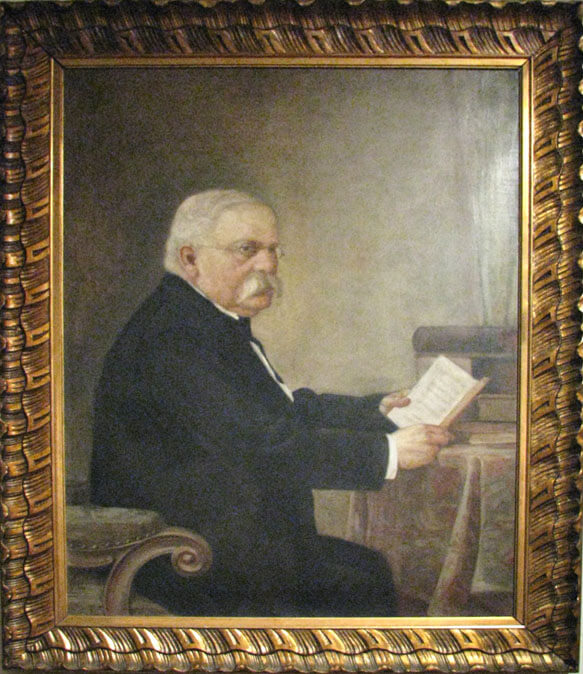
Janko Kamauf painted by Bela Čikoš Sesija, showcased in Zagreb City Museum © Unkown author, Wikipedia
He was the first, but was he the best?
I asked several historians if could they rate and pronounce in their opinion, with regards to the specific contexts, who was the best Zagreb mayor, from Kamauf to Vukičević Pavičić.
Two votes for Većeslav Holjevac!
„I'm not into grading, that's not a historian's task. Our task is to explain and put on the table facts and context of events“, said Ivo Goldstein when I asked him about the best mayor of Zagreb.
Ivo Goldstein may be best known to the Croatian public as a harsh critic of the far-right and the fascist regime of the Independent State of Croatia. As a Historian, he took an interest in various topics related to Croatian history.
At the start of his career, his focus was on Byzantine Empire and Croatian Middle Age History as well as the history of Jews in Croatia. In mid 90's he moved to the various aspects of Croatian history in the 20th century.
He was a professor of various history courses „General History of the Middle Age“ (1984-2003), history of methodology (1991-1996), and many more and today a full-time professor at the Department of History on The Faculty of Humanities and Social Sciences, the University of Zagreb (where he mastered and later completed his Ph.D. thesis at the Faculty of Humanities and Social Sciences, University of Belgrade).
Goldstein's scientific papers received positive acclaim in various countries worldwide, he hosted various projects scientific projects and associations and is very active in Croatian public space when it comes to historical issues that shape the ideas and decisions of current policies in Croatia.
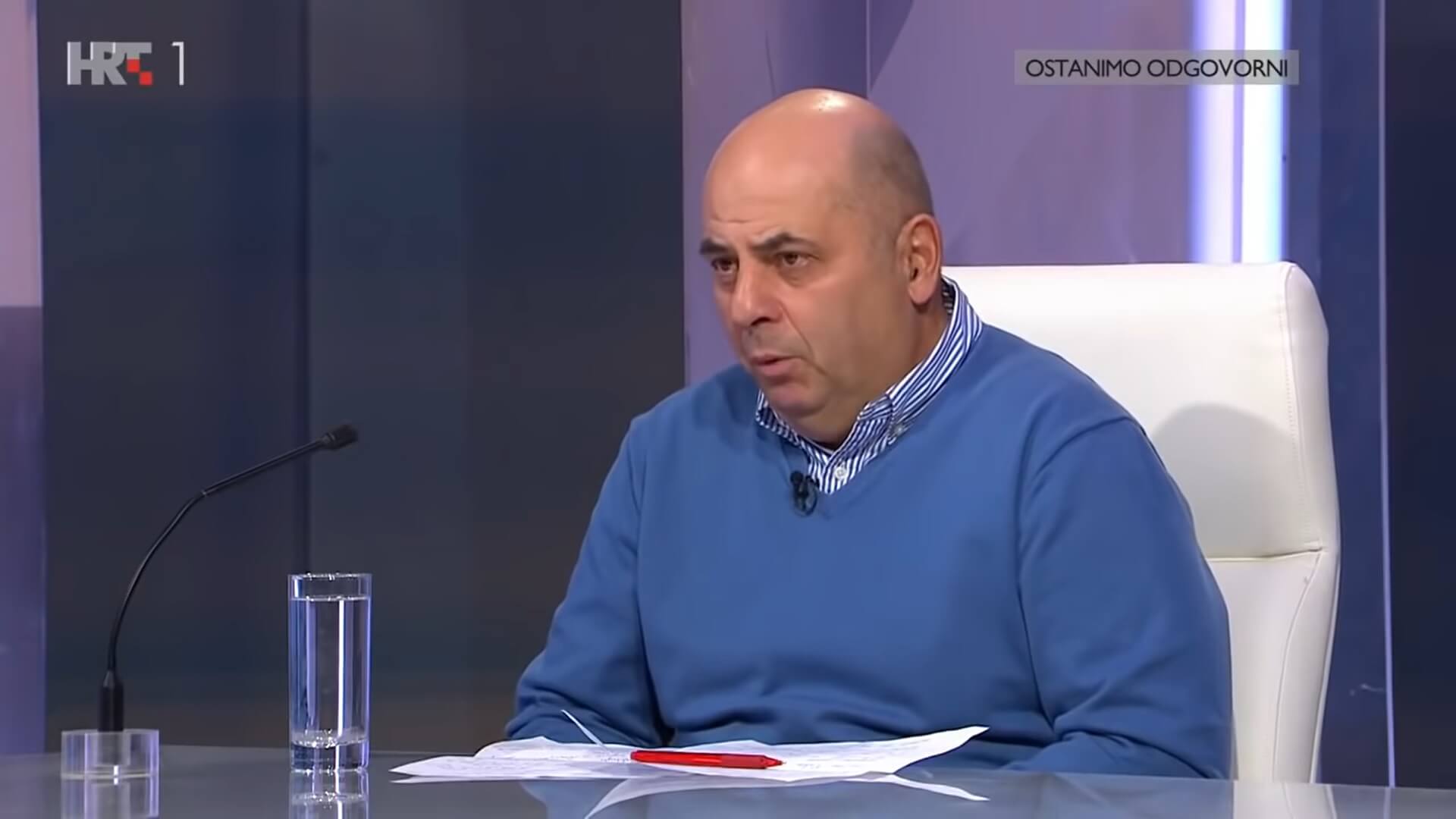 Ivo Goldstein / screenshot HRT Nedjeljom u 2
Ivo Goldstein / screenshot HRT Nedjeljom u 2
Upon explaining the role of historians, professor Goldstein nevertheless didn't mind giving his personal opinion.
„For me, there is no doubt that the best mayor of Zagreb is Većeslav Holjevac“, said Goldstein.
Većeslav Holjevac was the Mayor of Zagreb from 1952-1963 and his eleven-year mandate saw Zagreb develop and spread as the city.
„At that time, Zagreb was the capital city of Socialist Republic of Croatia, which was part of Yugoslavia. Holjevac saw a boost by liberal politics, it was the time of growth and optimism and Holjevac knew how to use it. He was a man of action and used Yugoslavia's opening to the world to Zagreb's benefit“, explained Goldstein.
He added that Holjevac didn't want to be perceived as some sort of transmission of higher state authorities. He didn't hide behind forums and was an independent, free-minded politician, which made him known and beloved among citizens.
„But it made him unloved among the higher power of authority which ended his mandate, although we historically don't know the real reason why Holjevac stopped being mayor“, Goldstein pointed out the mystery which is yet to be cleared up by historians.
The key term of Holjevac's mandate is the General Urban Plan which saw the development of the Most Slobode (Bridge of Freedom), expansion of Zagreb city to south across Sava river, and what today is Novi Zagreb (New Zagreb), as well as building up Zagreb Airport.
„Holjevac knew how to surround himself with good associates who were both dreamers and experts. Holjevac also engaged himself in the projects and his associates felt safe and that he got their back“, explained Goldstein.
The best example of that boldness and visionary approach can be seen in the Zagreb fair which was at that time located at the place of today's Student Centre in Savska.
„The fair needed expansion but was surrounded by railroad tracks everywhere, and the question was how to expand it. There were several options, but Holjevac decided to take it across the Sava river, and it happened. It was quickly constructed, and the first fair on newly build location was the Autumn fair in 1956. and it was the biggest event of its kind in the world back then“, said Goldstein, gladly adding he even had a chance to meet Holjevac as a 12-year-old since the mayor knew his father, an established Croatian intellectual, and politician, Slavko Goldstein.
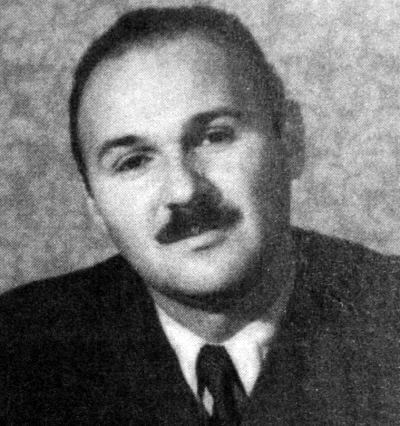
Većeslav Holjevac © Udruga Kameleon / Wikipedia
Hrvoje Klasić was professionally most occupied by Većeslav Holjevac, so he also shares Goldstein's opinion about Većeslav Holjevac.
„In a sentence: Zagreb has never been more developed as it was after Holjevac“, summarized Klasić.
Hrvoje Klasić graduated in 1997 from the Department of History, Faculty of Humanities and Social Sciences at the University of Zagreb. At the same University, he defended his dissertation entitled “1968 in Yugoslavia. Socio-economic changes in an international context”. Since 2003 he has been employed as a professor at the same Faculty and University.
Today, he holds a number of courses related to the world and national history of the 20th century.
Hrvoje Klasić also won the Annual Award of the Association of University Teachers and other Scholars in Zagreb in 2006. That same year he won the Annual Award of Sisak City for the Book „Croatian Spring in Sisak”. He is the author of 3 more books and the author of two documentary series „Croatian Spring“, and “The Independent State of Croatia” produced by Croatian Television. In 2017 The Serb National Council in Croatia gave him an award for the improvement of Croatian-Serbian relations. In 2019 he won the Award for the promotion of peacebuilding, nonviolence, and human rights.
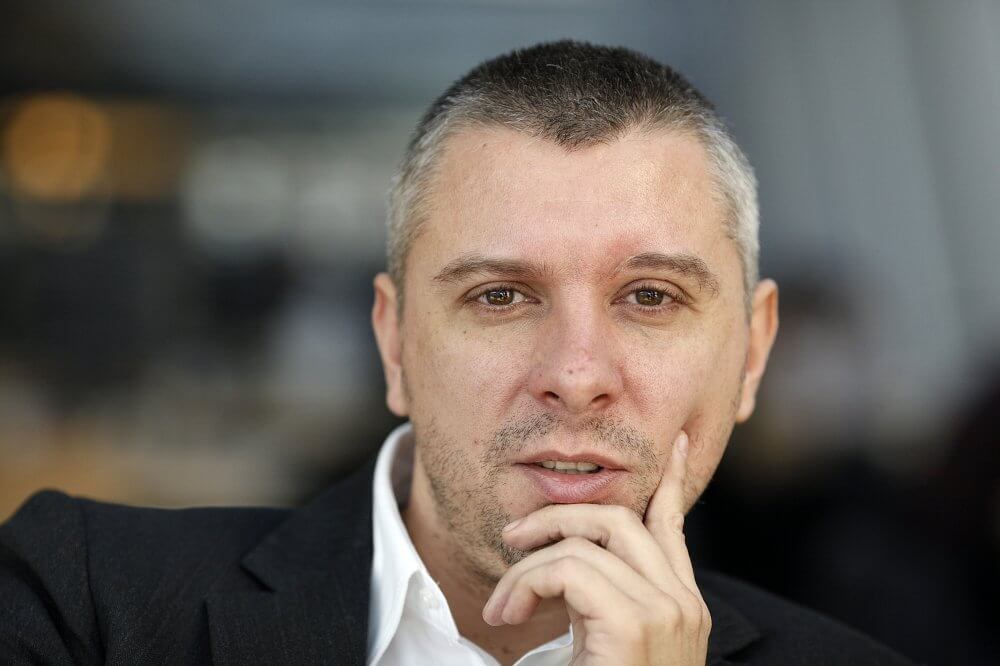
Hrvoje klasić © Hrvoje Klasić
„Most people don't know that Holjevac technically wasn't a mayor, rather he was a president of the City's National Council“, explained Klasić the precision of the functions in the previous Yugoslavian state. He added that while his term lasted from 1952-1963, that is only partially true because he was first appointed to lead Zagreb in 1945.
„In 1945, he was named the city commander who was a military function but he was also in charge of food, traffic, working with several refugees after World War 2 until he gave the control over to civilian bodies“, describes Klasić.
Holjevac then moved on to be the minister of work and traffic in the Social Federal Republic of Croatia. However, at that time, Yugoslavia was going under a change in its political institutions by the self-governing policy which went under parole „factories to workers, cities to citizens“, and as a result, Holjevac 's ministry was shut down. His return to the top position in Zagreb happened without him even knowing.
„As part of self-governing, the Communist Party in Zagreb searched for someone who isn't just going to execute orders from above but instead is an individual that has quality, creativity and will make its own decisions. Holjevac was elected during a meeting he wasn't even present on, and some members of the party were worried is it smart to give Zagreb to a person who is from Karlovac“, said Klasić.
As Goldstein already mentioned, his term lasted over a decade, and Klasić adds that was a very unusual duration at the time.
While Goldstein already mentioned the traffic connections of Zagreb, Klasić said it is very hard to count everything Holjevac built, but he put focus on the industry. Industrial plants of organic-chemical industry, Zagreb heating plant, industrial plants of Pliva pharmaceuticals, Chromos paint company, Kemika, Zvijezda company, Katran, Badel company for alcohol spirits, an ice rink on Šalata, winter pool and gymnastics gyms on Mladost, Yugoton record company, Jadran Film, TV tower on Sljeme, Zagreb drama theatre, an emergency room in Draškovićeva, various elementary and high-schools, and began construction of Vatroslav Lisinski concert hall and more.
„Before Holjevac, there were 40,000 workers in Zagreb. After Holjevac, there was 110,000“, said Klasnić to illustrate the results which made the city the strongest industrial center in Yugoslavia. Apart from industry, Holjevac put a lot of focus on culture and education, as evident by building Workers University Moša Pijade for adult education (today's Public Open University Zagreb) and culture.
Holjevac's „Jump over Sava“ was done on the one hand to prevent interventions in old Zagreb, and on the other, the organizational construction of Novi (New) Zagreb saw the workers live close to the newly built factories.
As Goldstein already referred to Zagreb Fair as perhaps the most significant project of Holjevac's mandate, Klasić added that the unique geopolitical position of Yugoslavia as the bridge between east and west, thanks to the non-aligned movement, made the fair a key place worldwide.
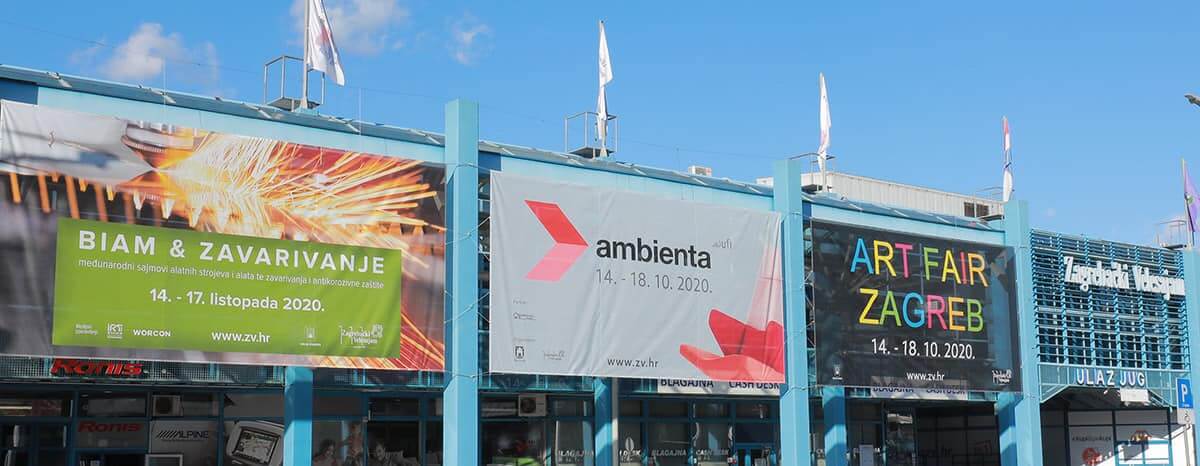
Southern entrance of Zagreb Fair in 2020 © Zagrebački Velesajam
„The fair was not just important for holding exhibitions, but for making deals and signing contracts as well. Given Belgrade was the capital of Yugoslavia, there were pressures to have such a fair there, and there were even boycotts from Belgrade to Zagreba Fair events. However, Holejvac being both persistent and enjoying support by the Yugoslavian president Marshall Josip Broz Tito, managed to keep this significant place in Zagreb“, explained Klasić.
When asked about resentment of other politicians, and the unclear mystery of concluding his mandate, Klasić said he had a chance to look at archives about Holjevac while working on an exhibition about him, and he feels that the situation is much simpler.
„Holjevac basically left due to the same politics that got him to be the mayor in the first place. The Self-Governing model started descending to the lower levels of the system and started searching for creative people. In 1963, a new constitution was brought that further developed the political system to give City Assembly more power accenting the community governing Zagreb. Holjevac's president of City's National Council title has shut down, and the president of Assembly became the first man of Zagreb.
Rotation of politicians as well as limited mandate time was arranged too“, explained Klasić.
He added, however, that it is problematic that an experienced, capable, brave, and brilliant man like Holjevac wasn't put to better use after he stopped being mayor and played bigger roles in Yugoslavian political life.
There isn't the best, only good and bad mayors
Unfortunately, other historians, I contacted (and of course, I couldn't contact every single one, who knows who else might be interested to participate), didn't respond to my inquiry. While Ivo Goldstein explained rating mayors isn't historian's job, Stevo Đurašković, professor at the Faculty of Political Sciences in Zagreb, further elaborated the problem of my question.
„I'm not a fan of such an approach to the topic like it's a miss pageant. In Zagreb's history (as in good portions of cities around the world). There were several great mayors, again, each in its own historical context“, explained Đurašković.
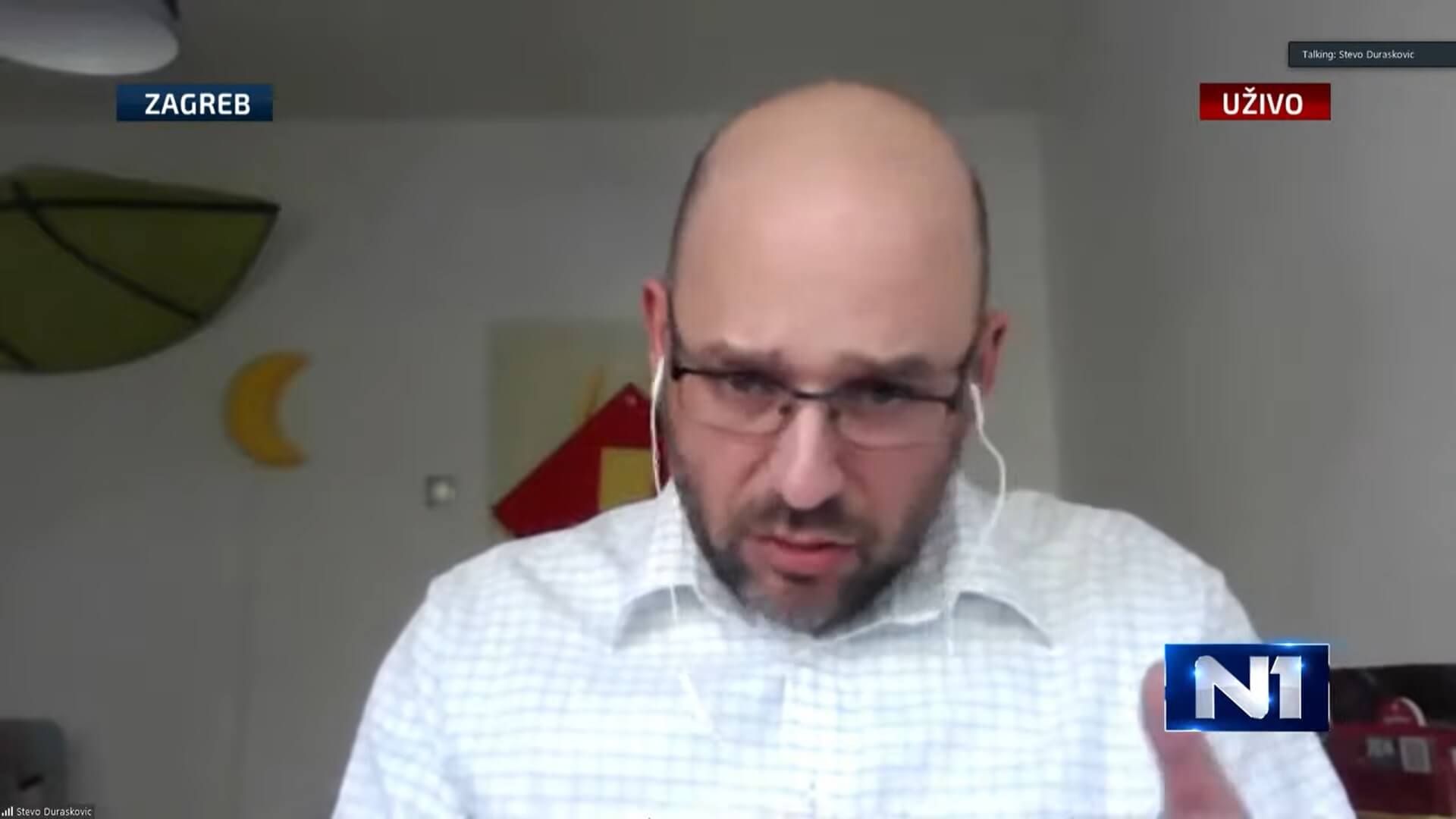
Stevo Đurašković, screenshot / N1
Stevo Đurašković is an Assistant professor at the Faculty of Political Sciences, University of Zagreb, where he teaches courses in politics of history and Croatian history. He received his Ph.D. in Political Science from the Faculty of Social Sciences at the University of Ljubljana and his MA in Central European History from the History Department at the Central European University, Budapest. His research interests include the politics of history, intellectual history, and national identity-building processes in East-Central and Southeastern Europe. Recently he published the book The Politics of History in Croatia and Slovakia in the 1990s (2016). Participated in several international projects, including “Identity Reader: Regional Identity Discourses in Central and Southeast Europe, 1775-1945” (CAS, Sofia). He is a member of the editorial board of the Cultures of History Forum (Imre Kertész Kolleg, University of Jena). In 2009/2010. He was a Ph.D. research fellow at the Faculty of Economic and Social Sciences, Comenius University, Bratislava (CEEPUS grant, Visegrad Fund grant).
In other words, an expert in his respective field with a valid and knowledgeable opinion.
„Milan Amruš and Većeslav Holjevac were great mayors. How to determine if Amruš's development of pre-war Zagreb is greater than Holjevac's post-war development of Zagreb?“ concluded Đurašković his decline to comment who would be the best mayor of Zagreb.
Speaking of Amruš, he was Zagreb mayor in two separate mandates, the first one lasting from 1890 to 1892 and the second from 1904 to 1910. Lice Grada reports that some of the accomplishments in Maruš terms include electrification of the city, and building up Munjara Power Plant (in 1906 and 1907). Under Amruš's mandate, the website continues, horse trams were replaced by electric trams in 1909 and new tram lines and the expansion of the previous one from Ilica to Topnička Barracks were constructed. In addition, 1890 saw lower and upper Zagreb connected by a funicular.
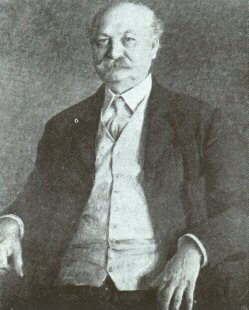
Milan Amruš © Unknown author Wikipedia
Đurašković also added in his decline that Pero Pirker is often „a forgotten mayor“, and Klasić mentioned him as the Holjevac's successor. Mentions of Pirker are also noted on Nacionalne Manjine (National Minorities) site that declared Pirker as a noted Zagreb mayor.
"There is no doubt that Pirker is one of the most capable, most successful, and in its time an extremely popular mayor. But it is stunning that for political reason, considering he was one of the established champions of Croatian Spring in 1972, his work was completely silenced not only until the 1990s but also later“, wrote Goran Beus Richembergh for Nacionalne Manjine.
It's worth noting that the Croatian Spring was a reawakening of national identity which paved the way for the country's independence and the dissolution of Yugoslavia, on which TCN reported on its 50th anniversary earlier this year.
In Pirker's time, the Great flood that sank Zagreb in 1964 was truly the historical challenge of his mandate.
„It was a natural disaster of great extent, and the entire previous state (Yugoslavia) was involved in sanitation and help was arriving from all over the world. But, the biggest responsibility for the coordination of help, sanitation of the damage, taking care of the casualties, and building new homes was carried out by Zagreb's authorities, lead by Pirker who showed to be a skillful manager and successful in various projects“, described Beus Richembergh.
Amruš had the challenge to electrify Zagreb to keep up with other European capitals, Holjevac had the challenge of restoring and developing the city post WW2, and Pirker had the flood.
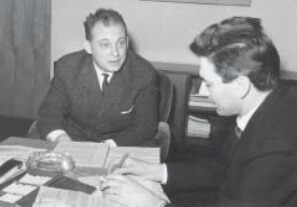
Pero Pirker (on the left) © Croatian Journalist Association / Wikipedia
Both corona and earthquake, as well as the mess suspected to find post-Bandić, are all just another challenge in the history of a town that is used to be challenged and always dancing victory laps.
While Đurašković explained comparisons of what was the most difficult challenge and who was the best mayor make no sense, Goldstein and Klasnić presented their pick. But, as respectable historians they are, they emphasized that it is their opinion and not an empirical fact, even though their arguments are both knowledgable and well explained.
In the end, politics should be about making people's lives better and not about chasing crowns or historical acknowledgments. And as Zagreb really needs a quality leader, the only logical conclusion is: may the best candidate wins, and may purgers recognize the best man or women for Zagreb to once again wave the middle finger to the aftermaths of the recent crisis as it overcomes them.
Learn more about Zagreb on our TC page.
For more about history in Croatia, follow TCN's dedicated page.


